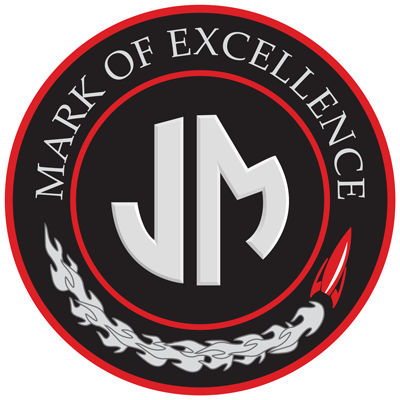The Dakota People have called Mni Sota (Minnesota) home for thousands of years. When tracing their lineage, they consider Mni Sota the birthplace of the Dakota, with Bdote (where the Mississippi and Minnesota rivers meet) and Bde Wakan (Spirit Lake, now also known as Lake Mille Lacs) highlighted in Dakota creation stories. At Rochester Public Schools, we acknowledge that Rochester Public Schools (RPS) sites are situated on the ancestral lands of the Dakota people. We acknowledge and honor the Dakota Nations and the sacred land of all Indigenous peoples. In an effort to reclaim Indigenous knowledge that has historically been overlooked, RPS is providing an opportunity for students to join an indigenous language course that explores the Dakota language.
 Natalia Benjamin, director of Multilingual Learning, and Amelia Cordell, coordinator of American Indian Education, led the development of the Dakota Language course in collaboration with RPS staff from the Office of Academics and Office of Equity and Engagement: Tucker Quetone, American Indian liaison, Sara-Louise Henry, coordinator of Student Empowerment, and Stef Whitney, instructor facilitator. They began by unpacking the Essential Understandings created by representatives from the 11 Native Nations in Minnesota and the legislative requirements for an Indigenous language and culture class. Natalia shared more about the process of creating the course, "Teachers around the district assisted as we developed training to learn more about Indigenous culture and history. These trainings support teachers in addressing Indigenous standards in their classes while also developing their expertise to be qualified to teach the new Dakota Language class."
Natalia Benjamin, director of Multilingual Learning, and Amelia Cordell, coordinator of American Indian Education, led the development of the Dakota Language course in collaboration with RPS staff from the Office of Academics and Office of Equity and Engagement: Tucker Quetone, American Indian liaison, Sara-Louise Henry, coordinator of Student Empowerment, and Stef Whitney, instructor facilitator. They began by unpacking the Essential Understandings created by representatives from the 11 Native Nations in Minnesota and the legislative requirements for an Indigenous language and culture class. Natalia shared more about the process of creating the course, "Teachers around the district assisted as we developed training to learn more about Indigenous culture and history. These trainings support teachers in addressing Indigenous standards in their classes while also developing their expertise to be qualified to teach the new Dakota Language class."
Gathering all perspectives and feedback on the Dakota language course was and will continue to be essential.
 “We met with the American Indian Parent Advisory Committee (AIPAC), and some local elders joined us for our professional development events," said Amelia. “The main goal of this course is for students to better understand our Minnesota roots and the Indigenous knowledge that supports and sustains our humanity and ways of being.” The Dakota language course embodies Indigenous pedagogies based on experiential learning, hands-on activities, and building positive relationships. Its main goal is to provide students with the opportunity to better understand Minnesota's history and learn Indigenous knowledge.
“We met with the American Indian Parent Advisory Committee (AIPAC), and some local elders joined us for our professional development events," said Amelia. “The main goal of this course is for students to better understand our Minnesota roots and the Indigenous knowledge that supports and sustains our humanity and ways of being.” The Dakota language course embodies Indigenous pedagogies based on experiential learning, hands-on activities, and building positive relationships. Its main goal is to provide students with the opportunity to better understand Minnesota's history and learn Indigenous knowledge.
"One example of this is to set aside time to learn about ourselves as we learn about Indigenous roots, cultures, and histories. There will be projects where students explore identity, cultural sovereignty, and current issues," Natalia said. "We are working on having an Elder in Residence to be part of this learning and work with local Indigenous communities."
Though the course is still in development, RPS staff hope that students will be able to visit Bdote, the birthplace of the Dakota, and the Mdewakaton Museum and Learning Center in Shakopee during the course to provide students with place-based learning experiences.
"Our hope is that our Native students will be uplifted and provide them opportunities for leadership while acknowledging their knowledge and sense of knowing,” said Amelia. “For our non-Native students, this course allows them to explore other perspectives and gain a deeper connection with our land. Learning these perspectives cultivates a deeper respect and responsibility for stewardship, encouraging students to take action that supports sustainability and honors the land. All students and even the teachers who teach or support this course will see how Indigenous values, traditions, and ways of being continue to shape our community, encouraging a more respectful and inclusive understanding of the diverse cultural fabric around them."
The Dakota language course will be piloted in the Spring of 2025. Upon completion, students enrolled will be awarded .5 credits underneath Ethnic Studies as an elective credit to be put towards graduation. After the pilot, a review will include participating students, staff, RPS's AIPAC, and the Indigenous Community. The work for the Dakota language course will be ongoing. It will not only provide our students with an enriching class but also build a foundation for implementing Indigenous standards that will be a part of every content area in our curriculum and classrooms.

